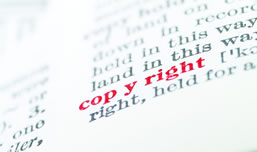Free Speech and the Internet
Some regard the internet as a free-speech free for-all; just ask the subjects of Wikileaks disclosures or the beneficiaries of anonymity-injunctions whose names were revealed on Twitter.
These arguments sit uncomfortably alongside criticisms that the laws that restrict free expression on the internet (e.g. libel, privacy and copyright) are too generous to those who want to have material removed. It is relatively easy to complain to the host or ISP of that content (particularly in Europe) than it is to the, possibly anonymous, creators of the content. Many hosts are understandably quick to remove allegedly infringing content when notified, so they can take advantage of defences to liability.
According to the laws that protect intermediaries from hosting infringing material, if the intermediaries do not know about such material then they are, under European law, not liable for damages. However, they can be subject to an injunction to remove the content and, as soon as they are aware of apparently infringing material, they lose their damages immunity. The L'Oréal v eBay European court decision in July 2011 might increase the circumstances in which intermediaries have the requisite awareness; the test being "if the diligent economic operator would have been aware". The English High Court's decision in the BT/Newzbin2 case may have a similar effect: the judge said that the knowledge requirement "should not be interpreted too restrictively", which may make it easier for complainants to demonstrate that the hosts have actual knowledge of, for example, repeat offenders.

Once intermediaries are put on notice or otherwise become "aware", they have to decide if they take the commercially safe option and take the allegedly problematic material down or if they take the risk of liability and seek to defend the allegations. It is normally less risky to take the material down.
A prima facie case that a complainant’s rights have been infringed may not be difficult to make out. Material can easily harm the complainant's reputation i.e. be defamatory. "Reasonable expectation of privacy" catches a wide range of private information (e.g. celebrities' sex-lives are all caught). The bar for showing infringement of a copyright work is generally low; perhaps even as little as 11 words of a newspaper article or 4 frames of a broadcast.
What appetite will hosts have to demonstrate that one of the defences applies?
In relation to defamatory allegations, would they be able to prove justification,  honest comment or Reynolds privilege? The appeal to the Supreme Court in the Flood v Times Newspapers case should hopefully clarify how easy it is to rely on this privilege. Would the host even want to try given the potential costs of litigation? The high costs and complexity of libel litigation in England are well reported.
honest comment or Reynolds privilege? The appeal to the Supreme Court in the Flood v Times Newspapers case should hopefully clarify how easy it is to rely on this privilege. Would the host even want to try given the potential costs of litigation? The high costs and complexity of libel litigation in England are well reported.
Could the host demonstrate that there was a public interest in the publication of private information? The European courts set a high standard in the Von Hannover case, although the October 2011 Rio Ferdinand case in the UK suggests there is some flexibility.
Would any defences to copyright be available? European (particularly UK) copyright law has a reputation for the narrow scope of its defences when compared with the US fair use defence. For example, the absence of a parody defence in the UK has been cited as a block on creative derivative uses of copyright works.
If pro-free speech reforms are to be introduced, they should target the substantive rules of liability as well as the exceptions for host liability. Intermediary defences could be fine-tuned to improve the protection which the relevant legislation, such as the Ecommerce Directive, was intended to provide. However, to a large extent, that legislation is now in the hands of the courts and we await further clarification on how wide those defences are.
It would provide a more rational and supportable solution if the substantive rules were changed. After all, we are not dealing with liability problems that are caused by or played out only on the internet. Admittedly, the internet has brought some problems with the law into sharp relief. The ease at which private information can be rapidly be spread to millions of readers and at which copyright material can be copied and shared demonstrate this. If there are problems, the internet has perhaps highlighted them rather than caused them.
The reform movement is in full swing. In the libel arena, the UK Parliament’s Select Committee recommended in October 2011 that the UK go further on strengthening the rights of free expression than previously proposed in the Government’s Defamation Bill. For example, if their recommendations were implemented, it should be easier to strike out trivial claims at an early stage, and a new notice and take down procedure is intended to encourage hosts to retain posts that are not anonymous or are in the public interest. Reforms, such as abolition of jury trials and prohibiting recovery of success fees, may also make it cheaper to defend defamation actions. In privacy, super-injunctions were the subject of a Judicial Committee review in summer 2011, emphasising that special circumstances are needed to justify courts granting them in the future, and a Joint Committee on Privacy and Injunctions was set up in September 2011. Further, the UK government is actively reviewing the exceptions to copyright infringement in light of Professor Hargreaves' recommendations (for example to introduce a parody exception).
that special circumstances are needed to justify courts granting them in the future, and a Joint Committee on Privacy and Injunctions was set up in September 2011. Further, the UK government is actively reviewing the exceptions to copyright infringement in light of Professor Hargreaves' recommendations (for example to introduce a parody exception).
Free speech campaigners may think these proposed reforms do not go far enough, and may even be sceptical about the chances of any meaningful reform but the movement is, at least, in the right direction. The campaigners have certainly harnessed the power of the internet to convey their messages through social media and it seems that their rights may be strengthened.
If you have any questions on this article please contact us.


Adam Rendle
Threats to free speech on the internet come in two forms: generous rules of liability and uncertainty about the protection available to hosts.
"If pro-free speech reforms are to be introduced, they should target the substantive rules of liability as well as the exceptions for host liability."

